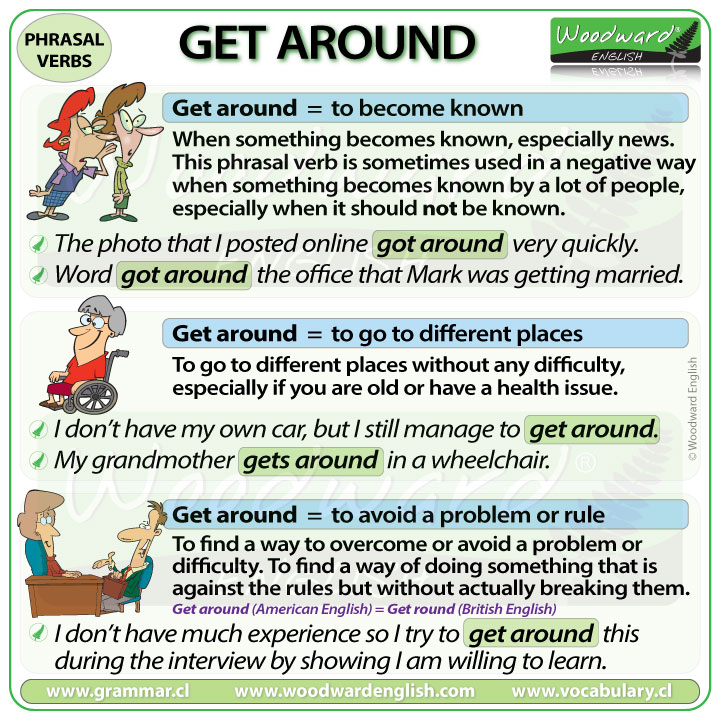The English phrasal verb GET AROUND has the following meanings:
1. Get around = to become known
(intransitive) When something becomes known, especially news. This phrasal verb is sometimes used in a negative way, as in when something becomes known by a lot of people, especially when it should not be known.
- The photo that I posted online got around very quickly.
- Word got around the office that Mark was getting married.
- Lisa has trouble keeping a secret. Once she knows your secret, it will get around in no time.
2. Get around = to go to different places.
(intransitive) When someone moves about or can go to different places without any difficulty, especially if you are old or have a health issue. It means to go from place to place. Synonyms include move, travel, and go places.
- I don’t have my own car, but I still manage to get around.
- Since Jason broke his leg, it is difficult for him to get around.
- My grandmother gets around in a wheelchair.
3. Get around = to avoid a problem or rule
(transitive) To find a way to avoid a problem or difficulty. To find a way of doing something that is against the rules but without actually breaking them. Synonyms are to avoid, evade, circumvent, or bypass.
- I don’t have much experience so I tried to get around this during the interview by showing I am willing to learn.
- Some international companies find a way to get around the local tax rules.
- The website required me to enter a password, but I got around it and was able to read their articles.
Notice this regional difference:
Get around => American English
Get round => British English
With this meaning, get round is used in British English instead of get around.
Get around – Summary Chart

